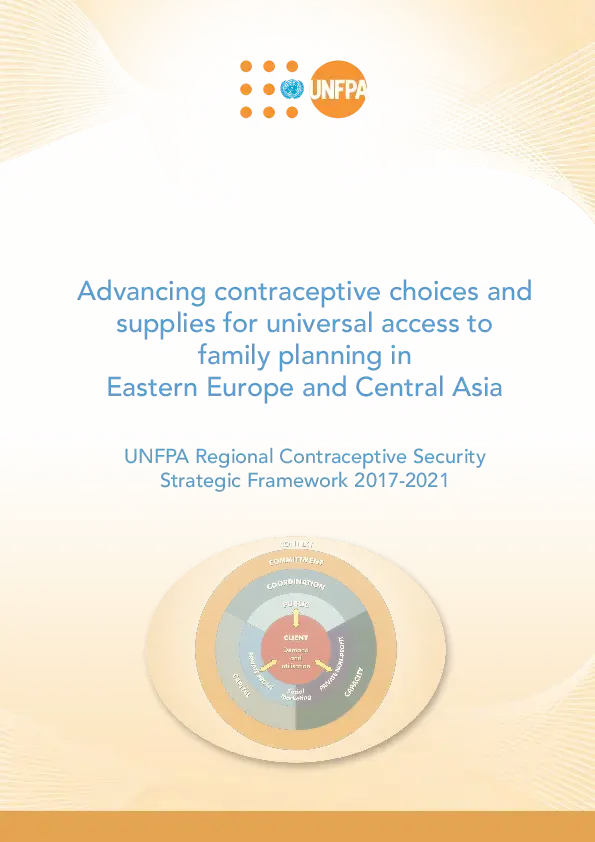Many countries in Eastern Europe and Central Asia face ongoing challenges in attaining universal access to sexual and reproductive health, particularly when it comes to securing the rights of all people to freely choose, obtain, and use high-quality contraceptives, including condoms. Despite improvements in access, modern contraceptive prevalence rates in the region remain low, contributing to high numbers of unintended pregnancies and a range of health problems, including rising rates of HIV and other sexually transmitted infections, as well as cervical cancer. Young people, the poor, migrants and refugees, ethnic minorities, and rural population groups still face serious barriers in accessing the services and information they need to safeguard their health.
UNFPA has been one of the main providers of contraceptives in the Eastern Europe and Central Asia region, an effort that has yielded considerable reduction in maternal and infant mortality and decline in the level of unintended pregnancy, including among adolescents. But as donor funding declines for national family planning programmes as these countries graduate to middle and upper middle-income status, innovative new region-tailored approaches are required to secure and improve on reproductive health gains in Eastern Europe and Central Asia.
The UNFPA Eastern Europe and Central Asia Regional Contraceptive Security Strategic Framework (2017-2021) aims to support countries in taking full national ownership of the provision of reproductive health commodities by building national capacity for running a sustainable contraceptive-security programme; streamlining coordinated technical assistance at regional and global levels; strengthening South-South cooperation and resource-mobilization opportunities for family planning advocacy; and facilitating coordination and cooperation between partners, including public-private partnerships, to allow for efficient and optimal utilization of limited resources, ensuring commodities reach the end-user in need.
Developed in partnership with the East European Institute for Reproductive Health (EEIRH) and with the support and consultation of all countries in the region, the Regional Contraceptive Security Strategic Framework employs a people-centred and human rights-based perspective and places the demand for commodities at the heart of its approach. It provides a roadmap for continued progress on the ICPD Programme of Action, which affirms that access to quality family planning commodities is crucial for securing reproductive rights globally and vital for fulfilling the promise of the Sustainable Development Goals and Agenda 2030.



